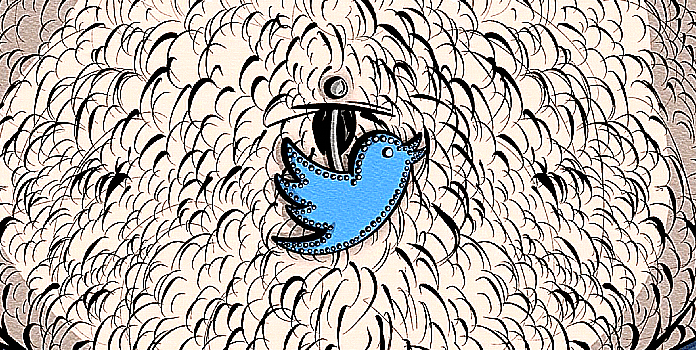(Ken Silva, Headline USA) The FBI worked at Ukraine’s behest to censor Twitter users and obtain their personal information, according to leaked emails obtained by journalist Aaron Maté.
Reporting on the contents of the emails, Maté said Wednesday that an FBI agent wrote to Twitter in March 2022 on behalf of the Security Service of Ukraine, the SBU—the country’s main intelligence agency.
The FBI agent reportedly flagged 163 accounts “suspected by the SBU in spreading fear and disinformation.” In an attached memo, the SBU reportedly asked Twitter to remove the accounts and hand over their user data.
The FBI’s request prompted a response from former Twitter executive Yoel Roth, who has frequently been in the news over his decisions to censor Hunter Biden laptop stories and other content.
This time, Roth expressed concern that the FBI was requesting Twitter to censor legitimate journalists such as Maté, according to the emails.
Roth reportedly told the FBI that “a few accounts of American and Canadian journalists (e.g. Aaron Maté).”
“Our reviews are going to focus first and foremost on identifying any potential inauthenticity,” Roth said in an email to the FBI. “In general, though, authentic news outlets and reporters who cover the conflict with a pro-Russian stance are unlikely to be found in violation of our rules absent of other context that might establish some kind of covert/deceptive association between them and a government.”
Ultimately, Twitter ended up suspending 34 of the 163 accounts flagged by the FBI and Ukraine, according to Maté, who added that 20 accounts no longer exist.
According to Maté, the users on the list would not only have been banned from Twitter but had their phone number, date of birth and email address disclosed to both the FBI and Ukraine’s government.
“Those marked for censorship by Ukraine but remain online include Russian politicians Gennady Zyuganov, a longtime member of Russia’s Communist Party and parliamentarian who lost to Boris Yeltsin in Russia’s 1996 president election; Dmitry Rogozin, Russia’s former Deputy Prime Minister; and Sergey Mironov, a Russian politician and parliamentarian,” Maté said.
“The list also includes Russian journalists Vladimir Solovyov, a television news host; and Margarita Simonyan, editor-in-chief of the Russian state-controlled network RT. Several Russian government agencies and media outlets were also listed.”
Maté added that the Ukrainian nationals targeted by the SBU’s suppression request include Anatoly Shariy, a video blogger and politician who fled Ukraine in 2012 and subsequently received European Union asylum; and Andriy Portnov, a Ukrainian lawyer and politician who served as a senior official under Ukrainian President Viktor Yanukovych until the latter’s ouster in the February 2014 Maidan coup.
Both Shariy and Portnov’s Twitter accounts remain active, he said.
Maté’s article is the latest report detailing Ukraine and the FBI’s push to censor political dissent on social media platforms.
Independent journalist Lee Fang published a story in April about the Ukrainian government partnering with the FBI to pressure social media platforms to censor content doesn’t comport with the country’s war propaganda efforts—even when such content is truthful.
“Once we have a trace or evidence of disinformation campaigns via Facebook or other resources that are from the U.S., we pass this information to the FBI, along with writing directly to Facebook,” llia Vitiuk, the head of the Department of Cyber Information Security in the Security Service of Ukraine, reportedly told Fang.
Ken Silva is a staff writer at Headline USA. Follow him at twitter.com/jd_cashless.

